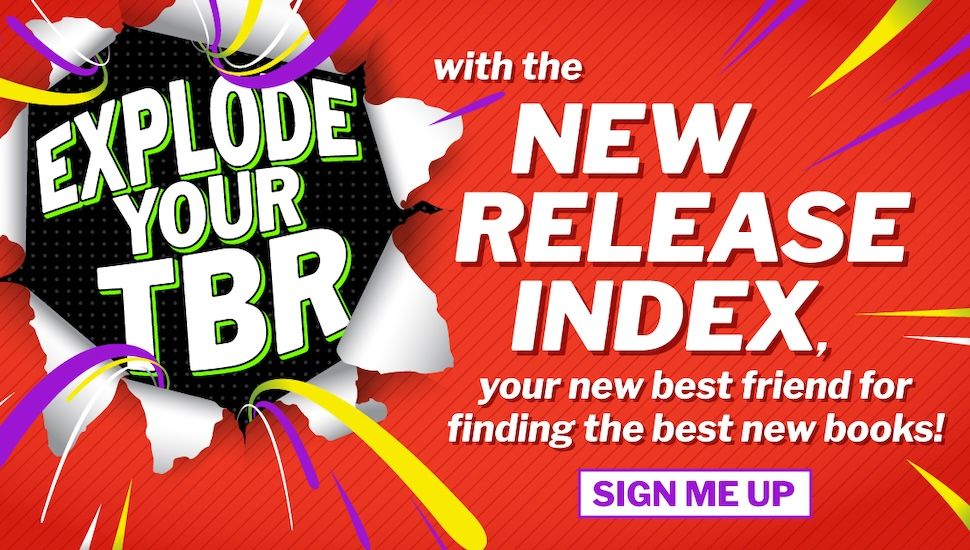
Please, Somebody Save Me From My Newest Reading Obsession
I’ve always been a pretty goal-oriented reader. When left to my own devices, I read a book here and there when I felt like it. Once I was introduced to the Goodreads Reading Challenge, all bets were off — I was officially a voracious reader.
This worked for me for a few years, but eventually I got burnt out. I started choosing books based on length. I slogged through books I didn’t like just because I’d already read 100 pages and I didn’t want those pages to “go to waste.” It was time for a change.
While I didn’t want to keep going with the Goodreads Challenge, I also didn’t want to drop back into unmotivated reading. And I didn’t trust myself to challenge myself without some arbitrary third party guiding my reading.
Then came the fateful weekend I was stuck in my aunt’s house with hundreds of books and picked one at random. It was Empire Falls by Richard Russo. I fell in love with this book, with Miles and Tick, with the moodiness of their small town. When I finished it, I was surprised to learn that it had won the Pulitzer Prize for Fiction in 2002.
This confused me because as far as I was concerned, only boring pretentious books won awards. How could this be! Upon a closer look, I realized that another book I loved — Middlesex by Jeffrey Eugenides — had won it too. Could it be that the Pulitzer Prize givers and I were on the same page about what made great contemporary fiction?
I had to find out — so I read every book that had won the Pulitzer Prize for Fiction (or, prior to the name change, the Pulitzer Prize for the Novel). If you want to know how that went, you can read about it in a previous post: 6 Things You Should Know If You’re Considering the Pulitzer Challenge.
The challenge took me years and when I was finally done, I was right back where I started.
This time I thought I had a solution — I would focus on reading only books I owned and had not read. I am very lucky to have a husband whose first priority when we moved into our current house was to build me a library. Of course, this led to the purchase of many more books, thus increasing my TBR pile significantly. I imagine this is a problem most of you can relate to (minus the perfect library-building husband, of course).
So I decided that in 2021 I would read only books that I already owned. This was a great goal, if not particularly creative, until PEN America announced they were going to be streaming their 2020 awards LIVE on the internet. Wow! I could be a hobnobber! How exciting!
And that’s what I did. I got myself all set up the night of the awards — fancy dress for no reason, snacks, a cup of tea, the whole nine yards. And then…it was pretty boring. Nothing against the award program itself but when I’d read only a few of the dozens and dozens of books they were talking about, I had no stakes. I wanted Shuggie Bain to win because I’d read it and it was great, but what about the other nominated books?
What about Sharks in the Time of Saviors? That Hair? Or the dozens of other books my fellow Rioters have loved over the year?
I am always overwhelmed when I think about how many excellent books exist in the world, and how few I’ll actually get to, even if I read 500 books a year. And I do not read 500 books a year! But when shifting through a list of books that others love and award-givers covet, I felt downright sad that I hadn’t gotten to many of the nominees.
And then the 2021 Booker Longlist was announced. The news came out in July and the shortlist would be revealed in November. That was enough time to read the 13 books, wasn’t it? Sure! But whoops, my TBR plan was out the window.
I did read them all (or at least 100 pages of them all — one of them was very much not to my liking). And I did stream the live broadcast of the award ceremony and it was slightly more interesting having read them all.
But then in December, 2022’s PEN America longlist came out, and shouldn’t I just hurry up and read those books? All 60+ of them??
Of course not! And yet…
When January 1 rolled around, I was in the middle of seven books and none of those were books I owned. All of them were shortlisted for PEN America awards. Whoops.
At the end of the day, this reading obsession is based on one thing: FOMO. If other people say these are the best books, I don’t want to miss out on the best books! But this prevents me from enjoying one of the best parts of being a voracious reader — stumbling upon hidden gems that surprise and enchant me. And it certainly doesn’t protect me from one of the worst parts of being a reader — wading through a book that is not to my liking because I’ve committed to it and goddamn I’m going to finish it!
The good news is that there is an answer to this problem and it can be found in 4000 Weeks: Time Management for Mortals by Oliver Burkeman. The title comes from the fact that if a person lives to the age of 80, they will have about 4000 weeks in their life. At first, this felt like crushing and claustrophobic news. I’m 42 years old, which means I’m looking down the barrel at fewer than 2000 weeks! I better do every possible thing I can do! I better read all the nominated books AND all the books on my TBR! I can’t ever sleep again! Who’s got time for blinking!
But in fact, Burkeman concludes the opposite. As I’ve learned in AA, “acceptance is the answer to all your problems,” and that’s his point, too. When I accept that I’m just not going to get to all the books, no matter how good my intentions or what is on my list, the obvious becomes clearer: I better choose carefully.
By trying to read all the nominated books I was addressing the “missing out” part of FOMO but the truth is that it’s impossible not to miss out on thousands, probably millions, of goods books. It is the “fear of” that needs to be dealt with and that is what I plan to do: to let go of the fear and accept the fact that I will absolutely miss out on some great books, there’s no way around it.
The idea isn’t to pack in as many books as possible. The idea is to stop treating my reading life like my options are limitless and embrace the finiteness. I will only get to read so many books in my future, who knows — maybe I’m on my last book right now.
There are books sitting on my bookshelves that have been living there for years, waiting patiently for me to pick them up, to crack their spines (to the chagrin of my pristine book–loving sister-in-law), to laugh or cry at them (or, ideally, both). I was excited about them when I bought them, or was gifted them, or plucked them from a Little Free Library, and I’ll be excited about them when I pick them back up.
And if I’m not, well, then it’s off to the next book — which may or may not be a prize winning (or almost-prize winning) book.









